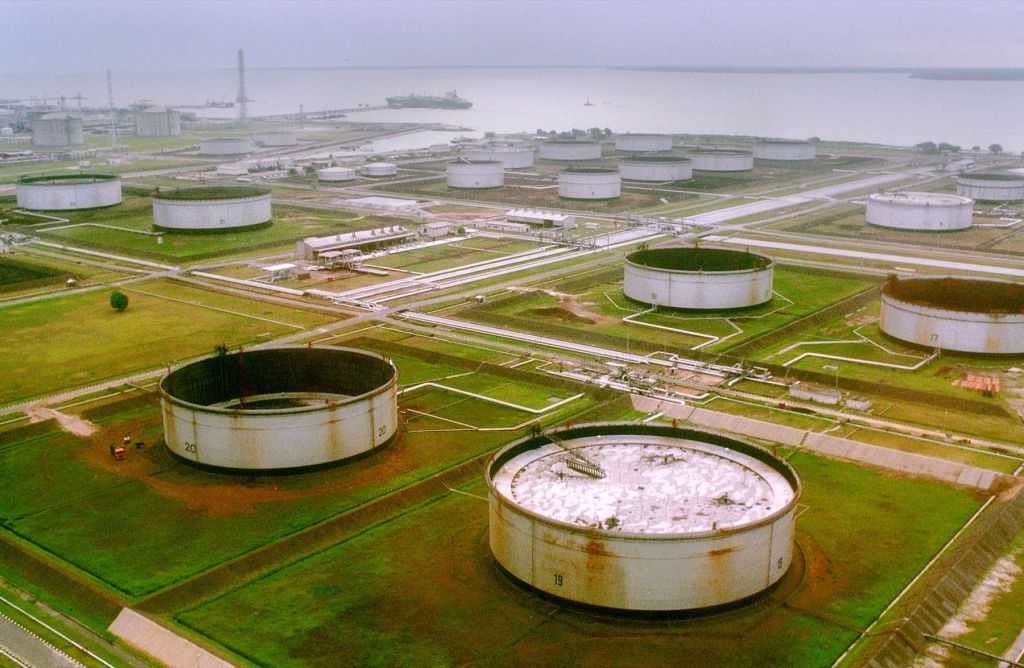By Onome Amawhe
A new 67-kilometer-long in Nigeria’s Niger-Delta area has begun commercial operation over a decade after construction began. The Amukpe Escravos Pipeline pipeline will have the capacity to transport 160,000 barrels per day (bpd) and reduce dependence on existing infrastructure.
The Niger Delta is both ecologically sensitive and one where oil infrastructure projects often face a number of security challenges. To tackle both of these challenges the new pipeline has been placed between 6 and 45 meters (147.64 feets) below the surface. This deep subterranean installation protects against damage from dredging, ecological damage, and vandalism.
The project was initiated by Pan Ocean Oil Corporation in 2011 to show of the company’s commitment to deliver petroleum to Escravos, with access for tie-in by oil firms operating in the Western Niger Delta.
“We are elated at the success of this project, and we owe it to the many hands who have all helped in some ways to see it through,” says Pan Ocean’s Chief Operating Officer, Olajide Ishola.
The Amukpe Escravos Pipeline was constructed using horizontal directional drilling technique, which makes it , safer for operations and also reduces environmental impact.

“We are pleased that people who invested in this project will finally enjoy the fruits of their patience and hard work,” said Ishola. “These kind of initiatives have lengthy gestation periods, but in the end, investors gain huge dividends.”
The commercial launch of the pipeline is a momentous occasion for Seplat Energy, an indigenous oil firm. When the Pan Ocean and NNPC Joint Venture ran out of funds for the 67-kilometer alternative export pipeline in 2019, Seplat Energy stepped in.
The pipeline was one of three projects that Pan Ocean/NNPC JV had planned to launch in June 2019. It was placed on hold when the Department of Petroleum Resources, DPR, revoked Pan Ocean’s license on OML 98.
The construction of the Amukpe-Escravos Pipeline was originally intended to export crude oil from Pan Ocean’s OML 98, but the company’s rights to crude production on the acreage were revoked in April 2019. Concurrently they company lost a license to operate both phases of the Ovade-Ogharefe Gas Processing Plant.
In a disclosure document seen on the company’s website, the Chief Executive Officer of Seplat Energy, Roger Brown said the Amukpe Escravos pipeline offers “a more secure and reliable export route that will assure higher revenues and profitability for Seplat Energy, enabling us to make a larger contribution to Nigeria’s economy.”
“We commend the work that has made this possible and appreciate the efforts of our partners and all contractors involved in creating this more reliable and secure export route for Nigeria’s oil”, Brown added.
The Amukpe Escravos pipeline connects Seplat Energy’s key oil assets from the oil driller’s Amukpe Liquids Storage Terminal to Chevron’s off-shore Escravos Terminal.
It can carry 160,000 barrels of oil per day, 35,000 of which are supplied by Seplat Energy and the state-owned Nigerian Petroleum Development Company Limited in a joint venture.
Seplat had anticipated that the pipeline will be operational by the end of 2019. The COVID-19 epidemic hampered progress, pushing completion and first lifting to the end of last year.
The Amukpe to Escravos pipeline will offer a third export option for liquids produced at OMLs 4, 38, and 41, in addition to the Trans Forcados Pipeline system and backup export through the Warri refinery.
Aside from Seplat Energy, other investors and the Nigerian economy would benefit from the asset since it will relieve strain on the 87-kilometer Trans-Forcados Pipeline (TFP), a four-decade-old pipeline system. These companies include NPDC, Enageed, Summit, Newcross Petroleum, Continental Oil & Gas Pan Ocean PSC, and Continental Oil & Gas Pan Ocean PSC, all of which have activities in Nigeria’s midwestern Niger Delta.
The Trans-Forcados Pipeline has struggled over the previous two decades, with multiple breaches as the infrastructure has become an easy target for criminal groups and vandals attempting to steal crude oil.
Between February 2016 and early 2017, disruptions on the Trans-Forcados Pipeline forced oil producers to lock in output, causing significant financial difficulties for the Nigerian government and low bottom lines for crude oil companies.

Total oil postponed due to Trans-Forcados Pipeline outage by Pan Ocean alone was 16.2 million barrels of oil in 2006-2007 and 2009. Total oil postponed due to downtime was 3.7 million barrels, in the 2016-2017 period.
“The vulnerability and instability of the Focardos pipeline give credence to the project…. The downtime usually experienced by companies that currently use the Focardos pipeline is usually very dire on their financial performance,” says Jubril Kareem, acting Head of Energy Research at Ecobank Transnational, a pan African lender.
The deeply buried pipeline project is expected to potentially reduce many of the challenges faced by similar pipelines in the past.
Recommended from our partners
The post A New Nigerian Oil Pipeline Hopes To Secure Oil Export Route appeared first on Zenger News.

